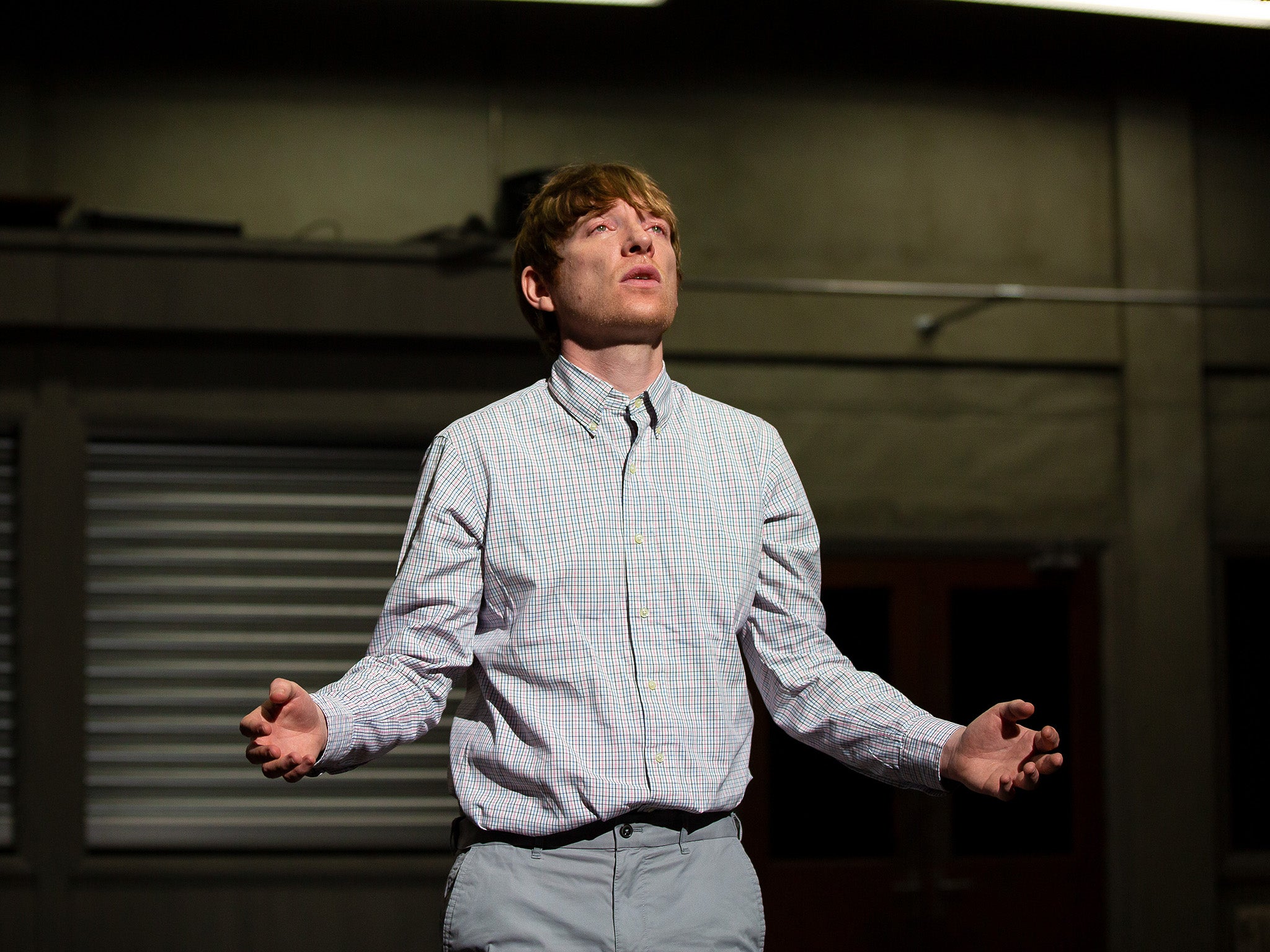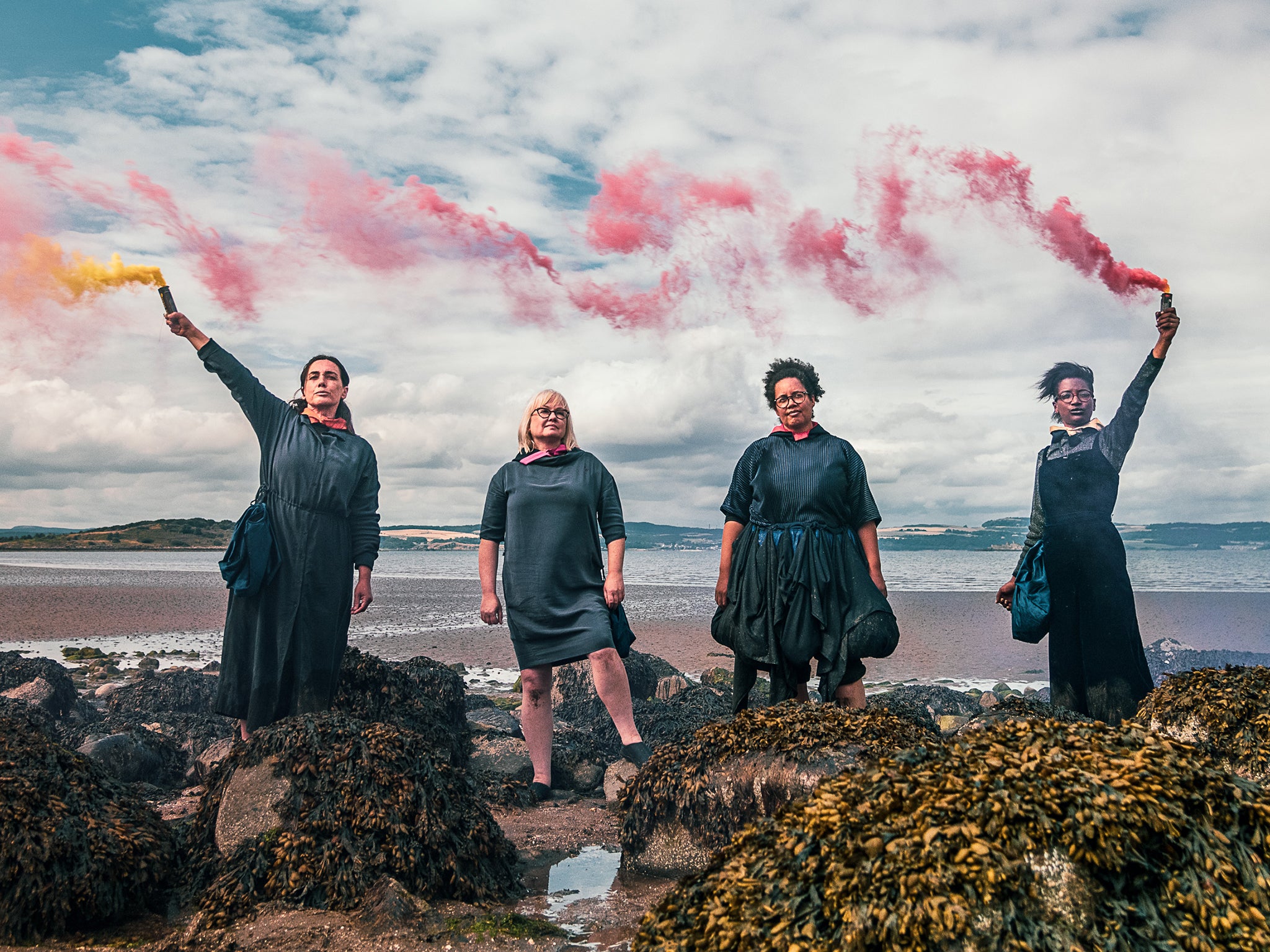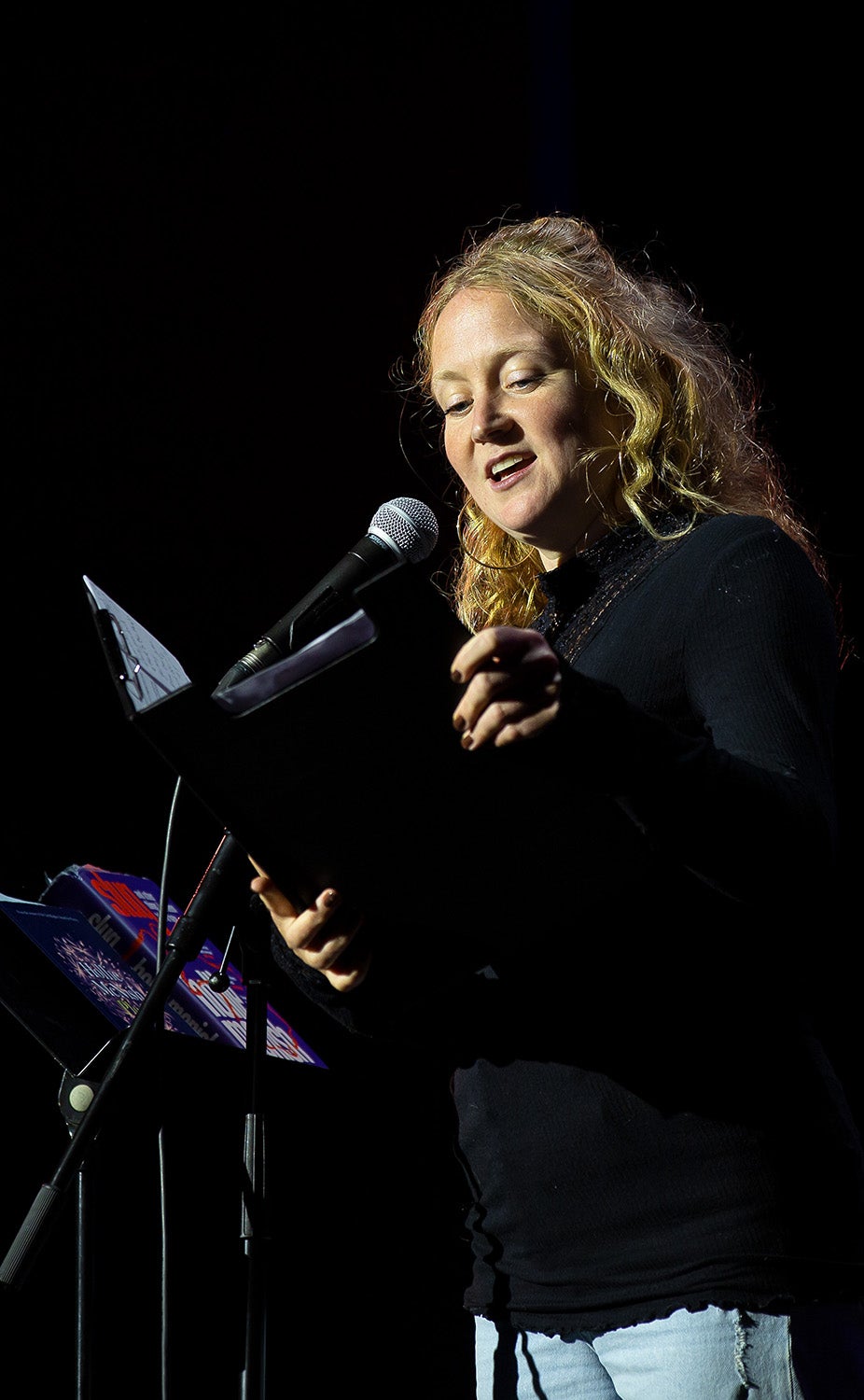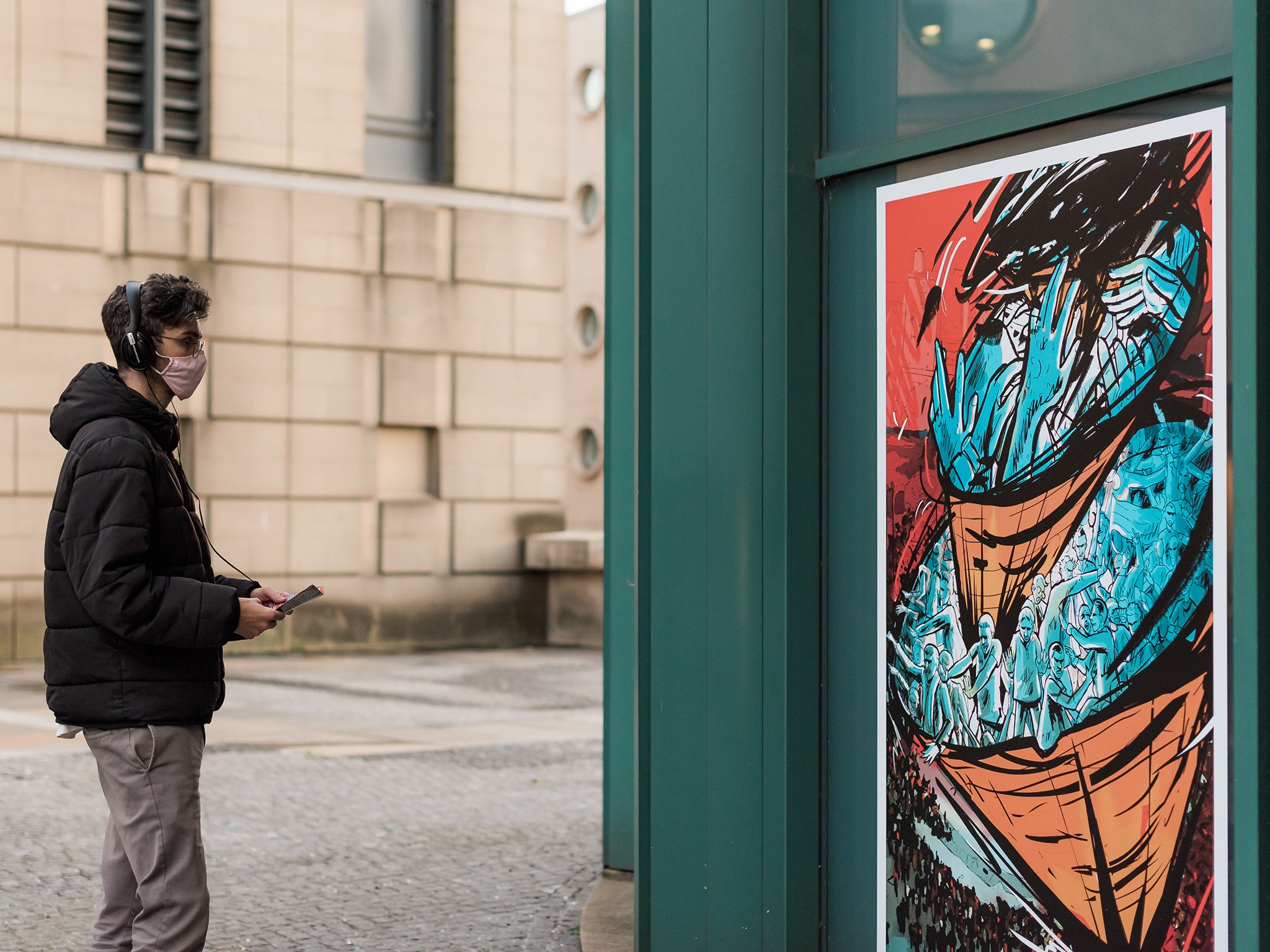Edinburgh Festival 2021: The 10 best shows at this year’s scaled-down comeback
A triumphant return for the festival saw punters immersed in grief, jazz-rock freakouts and feminist anger, writes David Pollock

Your support helps us to tell the story
From reproductive rights to climate change to Big Tech, The Independent is on the ground when the story is developing. Whether it's investigating the financials of Elon Musk's pro-Trump PAC or producing our latest documentary, 'The A Word', which shines a light on the American women fighting for reproductive rights, we know how important it is to parse out the facts from the messaging.
At such a critical moment in US history, we need reporters on the ground. Your donation allows us to keep sending journalists to speak to both sides of the story.
The Independent is trusted by Americans across the entire political spectrum. And unlike many other quality news outlets, we choose not to lock Americans out of our reporting and analysis with paywalls. We believe quality journalism should be available to everyone, paid for by those who can afford it.
Your support makes all the difference.This year’s Edinburgh Festival has been one like no other. But while the number of shows and visitors to the city has been greatly reduced thanks to restrictions on foreign travel, that it went ahead at all was a major triumph. In new outdoor venues and amid the usual performances on the Royal Mile, the mostly gorgeous weather and buzz of activity have brought a refreshing sense of scaled-down normality to the city.
It was unclear if many planned events could go ahead because Covid restrictions were still in place even when the festival began in August. Contingencies were made but the main venues would depend on at least semi-relaxed social distancing and an ability to host shows indoors.
The prestigious Edinburgh International Festival had already confirmed large-scale shows in three purpose-built tents around the city, while the Edinburgh International Book Festival had announced a relocation to the more versatile Edinburgh College of Art. When these were confirmed, the can-do post-war spirit which formed the festivals in 1947 was enough to make sure things happened.
For the first time in more than a decade, Edinburgh International Film Festival would be held in August as independent Festival Fringe venues including Assembly, the Gilded Balloon, the Pleasance, Underbelly, Summerhall and the Traverse Theatre put together a reduced programme of indoor, outdoor and tented shows. The new MultiStory open-air venue was even opened on the roof of a car park in the shadow of Edinburgh Castle.
With several of the international events appearing as online-only performances, here are ten great live shows we saw as part of a three-week return to performance with the eyes of the world watching from afar.
At the Edinburgh International Festival, the big theatre draw was undoubtedly the premiere of playwright and director Enda Walsh’s Medicine (Traverse Theatre ★★★★☆). It was an even hotter ticket than any play starring such a recognisable actor as Domhnall Gleeson would normally be, considering there were only around 50 distanced audience members in a room which usually holds nearly five times that number.
The feeling of emptiness in the space added to the surreal oddness of the piece, as a man named John Kane (Gleeson) enters some sort of community centre. An old man and a talking lobster materialise. They remove their costumes to reveal two women (Aoife Duffin and Clare Barrett), who appear to either be nursing or psychologically tormenting John.
A feast of surreality, slapstick and dark humour with a live drum soundtrack, Medicine was as hard to work out as it was brilliantly performed. Elsewhere, a taste of the strange came in a much more compact package. Phantasmaphone (Institut Francais d’Ecosse ★★★★☆) was a brief and beautiful diversion that invited an audience of one into the corner of the French Institute in Scotland’s gorgeous marbled foyer just off the Royal Mile.
There, we sat on a comfy leather chair, lifted an old bakelite telephone, and met an actor in Paris who chatted for a while before reading a story in French. The one we heard was about cycling from the north to the south of the city, and even without speaking French, the urgency of the tale evoked a place that now seems far away.
Meanwhile, Move (Silverknowes Beach ★★★★☆) took place in the open air, on the sand flats of one of Edinburgh’s beaches on the Firth of Forth, with the audience making themselves comfortable on its rocks. Written, directed and co-performed by Julia Taudevin, it told separate stories of migration from across the world, with roots in the keening song of Scots Gaelic folk culture.
The audience heard the words of the five performers through radio microphones and watched them make the shoreline their stage for a performance that blended music, song and dialogue. For anyone intrigued enough to experience the online version, it’s streaming on the Traverse Theatre’s website.

Beaches seemed to be a common theme this year. Another one popped up in playwright Frances Poet’s Still (Traverse Theatre ★★★★★), in which Gerry Mulgrew’s dishevelled Mick wakes up on Edinburgh’s Portobello beach with two wedding rings in his pocket and no memory of how he got there. An ensemble comedy about death, grief and getting out of the house after a long time indoors, it suited the times.
Another outdoor play was Doppler (Newhailes Estate ★★★★☆), by Scottish site-specific company Grid Iron, which was planned for last year before Covid called it off and cancelled a film version. The adaptation of Norwegian novelist Erland Loe’s book starred Keith Fleming as the title character, an eccentric eco-narcissist who leaves his family behind to live off-grid in the forest.
With a supporting cast including Chloe-Anne Tylor as the young elk Doppler quasi-adopts after killing its mother for meat, the play was a satirical commentary on the futility of solitary ecological existence. It was also a powerful affirmation of creative theatrical spirit, with a whole stage and tech system built in the woods and then dismantled after every performance.

Another technical accomplishment on a grander scale was Edinburgh International Festival’s trio of tented structures, which had the acoustics and dark atmosphere of a concert hall, mixed with Covid-safe distancing, ventilation and table service. A whole programme of music could go ahead, and London’s black midi (Edinburgh Park ★★★★☆) was a particular highlight.
Finally touring this year’s Cavalcade album, their set was a torrent of angular jazz-rock freakouts, with diversions into psychedelic and Sondheim-esque musical theatre. In the absence of a sweaty, packed basement venue, this felt like the next best way to experience them.
With many comedians tentatively getting back in the game with work-in-progress sets, an old Fringe stager and national telly star of the Nineties returned with Jack Docherty: Nothing But (Gilded Balloon Teviot ★★★★☆). His show reminisced about a cheating Fringe romance from the Eighties, a subsequent marriage, parenthood and divorce, followed by a reunion with his old crush in the company of his daughter. It was filled with funny, self-deprecating and nostalgic lines about the success of his youth versus being a pitiful man-child who now needs to be taught by his daughter to act his age. It was a total love letter to Edinburgh and the Fringe itself.
Two stand-out pieces broached the harrowing subject of violence against women with skill and heart. Written by Martha Watson Allpress, directed by Kaleya Baxe and featuring a striking solo performance from Angelina Chudi, Patricia Gets Ready (for a Date with the Man That Used to Hit Her) (Pleasance at EICC ★★★★☆) possessed an accurate title. Chudi is a young woman who bumps into her violent ex on the street and, without thinking, agrees to go for a drink with him. The monologue tracks her memories of their time together, her turmoil and conflicted feelings for him with revelatory insight.

Sara Shaarawi’s Niqabi Ninja (Royal Lyceum Theatre ★★★★☆), meanwhile, is a pre-recorded headphone play. It’s a dialogue between a young woman – who recounts harrowing sexual assault in Cairo’s Tahrir Square during the Arab Spring – and the fantasy “Niqabi Ninja” character she’s created to exact vengeance.
Finally, Hollie McNish (Old College Quad ★★★★★) was the shining light in a stunning line-up of the International and Book Festivals’ week-long A Toast to the People spoken word series. Her feminist poems were rich with raw, sweary, laugh-out-loud humour and an incredible, fluent sensitivity for feelings of grief, love and anger at the state of sex education in schools today. Listening to her was the peak Edinburgh Festival experience: an awareness that bad things exist in the world, softened by the sense that they feel better when we share how we feel through art.



Join our commenting forum
Join thought-provoking conversations, follow other Independent readers and see their replies
Comments